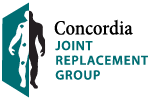Your orthopaedic surgeon has the expertise to replace your worn and damaged joint, but you have the most important role to play in your surgery and recovery.
You must prepare to achieve the best possible outcome from your surgery. Here is what you can do to get ready for that big day:
- Follow your orthopaedic surgeon’s recommendations
- Your surgeon and his office give you specific instructions to follow that are important to your health and safety leading up to and including your surgery. Not following these recommendations can cause your surgery to be cancelled at the last minute or unnecessary complications to happen.
- Maintain or improve your fitness level and your joint range of motion – maintain strength and mobility.
- The healthier you are going into the surgery, the more efficient your recovery will be.
- Maintain or attain a healthy weight.
- People who are overweight have a higher risk for complications after surgery.
- Have any dental work done.
- Having dental work done before surgery reduces the risk infection after surgery. This is especially true for major dental procedures.
- Learn about your surgery.
- Seek out information and ask questions, however, be careful to ensure that the information you review is credible.
- Talk to people who have had a similar surgery (visit Orthoconnect).
- People’s experiences can ease your mind or worry, but be sure to remember that everyone is different and that not all people have the same interpretation of their experiences.
- Prepare yourself and your home:
- Stock the freezer with quick and easy to prepare meals.
- There are many things to do around your home in preparation for surgery, making easy meals for yourself, and setting up a bedroom on a main floor are some examples of things that are helpful in easing your transition from hospital to home. Your therapist will assist you in determining what needs to be done to get your home environment ready ahead of time.
- Quit smoking at least two weeks prior to surgery to reduce complications and aid soft tissue and bone healing.
- Smoking is a lifestyle habit that is difficult to change, however your risks of complications are greatly reduced if you do not smoke. Consider your options and talk to your family doctor about quitting smoking as there are many methods to help you succeed.
- Find out how long you may require outpatient physiotherapy and locate a physiotherapy facility close to home. (Manitoba Physiotherapy Association website)
- In Manitoba, access to physiotherapy services beyond those offered to you in the hospital is variable. However, there are many ways to obtain the rehabilitation you require. Be sure to discuss your needs and services with your therapist before and during your hospital stay.
- Find out what, if any, assistive equipment you’ll need to rent/purchase.
- Things you can do now and will be able to do again may be difficult for a while after surgery. You will need an assistive walking device such as a cane or walker and other equipment such as a shower chair, grab bars and raised toilet seats. Talk to your therapist about these devices and how to arrange to get them.
- If your recovery involves not bearing weight on your limb, consider practicing using crutches or a walker to test your ability to comply with the requirements during your recovery. If you are not able to remain off of your affected leg, you may need to prepare to have more help, such as a wheelchair or assisted-living environment to recover until you are told that you may put full weight on your leg again.
- Arrange any supportive care (including a driver), if needed, in preparation for discharge from hospital.
